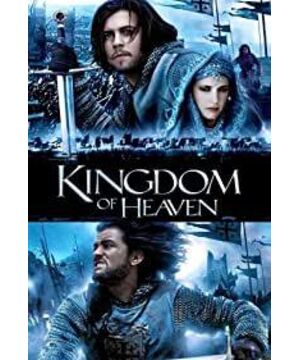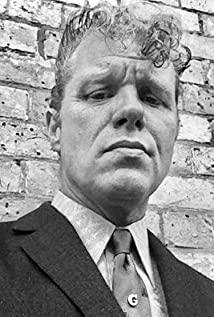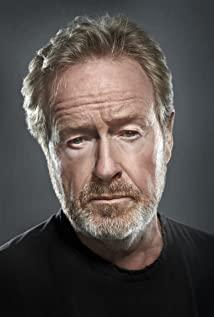Directed by the famous British director Ridley Scott and released in 2005, the Hollywood movie "Kingdom of Heaven" tells the story of a small French blacksmith, Barian, during the Crusades in the 12th century, under the guidance of his biological father. Next, in order to free his deceased wife and his own soul, he went all the way to the holy city of Jerusalem. In the process, Balian re-understood the true meaning of faith, and at the same time led the people of the Holy City to successfully resist the crazy attack from the rival Saladin, and defend the dignity and glory of the King of Jerusalem and himself. Made in the post-9-11 era, the film has a metaphor of its own. The ideology contained in the film has also received unanimous attention and questioned by critics. Facts have proved that, as a post-9-11 era film, the struggle and fusion between different religious beliefs it reflects are of epoch-making significance. In the academic paper "Film/Ideology/Criticism," authors Jean-Luc Comolli and Paul Narboni argue that "every film is part of an economic system, and at the same time, they are part of an ideological system, and both cinema and art are is a branch of ideology." From this perspective, as a high-end form of art, film plays a very important role in the production and dissemination of consciousness and values. It is undeniable that every film has its own political purpose, and the directors and producers behind the film itself determine how the political purpose works. This is not just for Hollywood movies or commercial movies, but for all types of movies. Take the film "Fahrenheit 911" directed by McMoore and released in 2004 as an example. After watching this film, most audiences will immediately sneer at US President George Bush and the Iraq War he launched, but we must realize that The thing is, "Fahrenheit 911" is a film with a very clear political purpose. The ideology of the film is actively controlled by the director, while the audience is only a passive receiver. The political purpose is evident. "Film can reconstruct reality," but it doesn't necessarily establish real facts. Therefore, the ideology reflected in the film is not necessarily its real relationship with reality, but its relationship with reality that the director drives us to imagine. Meanwhile, in this academic paper, authors Jean and Paul also proposed that there are a total of seven different forms of expression of values and ideologies in existing film genres. The first type is that the values and ideologies in the film are no different from what people encounter and see in their daily lives. It blinds people for a long time and makes them shaped and influenced by them. There are also three types that are relatively critical and reality-alarming in an overall sense: one is influenced by old-time values and thus provides an offensive description of the assimilation of consciousness in reality; the other is a weakened political , the political purpose is not clear, but its ambiguity is used by critics to attack reality; the last one has obvious political purpose and political tendency, and strongly criticizes social reality through the description in the film. Likewise, there are two other forms of cinema that are politically weakened in a general sense, and this weakened state is compensated by technical and theoretical manipulations: the first type is itself an explicit political attempt Sexual, but in terms of film performance, it does not effectively express its theme and connotation; while the second type is quite embarrassing, it really starts with political elements, and as the film progresses, this purpose is replaced by The use of its own plot and technical means has gradually weakened. The last type is the exact opposite of the former. It starts from watching movies and presents a category that belongs to the category of consciousness assimilation, but gradually takes on the nature of ideological criticism. In the article "Film/Ideology/Criticism", authors Jean and Paul An interesting and systematic summary of the different categories of films and their different uses for political and critical purposes. However, returning to the movie "Kingdom of Heaven", what kind of attitude does director Ridley Scott have towards criticizing genres; as a director, what is the real purpose behind "Kingdom of Kingdom"? Before analyzing the ideology of this film, the author would like to declare that the version of Kingdom of Heaven discussed in this article is not the release version that year, but the director's cut version that was released later. Some netizens commented that the two different versions of "Kingdom of Heaven" are two completely different movies. In fact, the director's cut is way better than the release. After watching "Kingdom of Heaven", we can find that throughout the whole film, through the images and lines, the director has been instilling a kind of denial of religious belief and reverence for true belief. In the 54-minute clip of the film, the protagonist Balian discusses with another crusader what faith is. The knight said: "Speaking of faith, I have seen so-called believers use the name of God to do evil." During the war , Religion has ceased to exist, and it has become an excuse for the church to be domineering and arrogant, and it has become a refuge for the king to launch wars and endanger the people. This scene reflects the idea that director Ridley Scott wants to express, and it is also in line with the second type of film type mentioned earlier in the article: the characters in the film reflect the distortion of reality, thereby attacking This assimilated ideology. However, the irony is that these directors intend to express the criticism and denial of the consciousness of reality assimilation; the true understanding of religious belief; the catalytic role of the church in the historical period of the Crusades; the clergy in the people All the facts of being intimidating in front of the enemy and timid and unwilling to fight in front of the enemy were eventually cut out under the control of the producers, resulting in the mediocre but harmonious epic movie that was released that year. This just belongs to the category of the first type mentioned in "Film/Ideology/Criticism" - the ideology reflected in the film is no different from what people see and feel in daily life, and it is in line with the social meaning The starting point, but gradually evolved into a genre of films of apolitical meaning and purpose. Although the released version also shows the strong collision and impact of Christianity representing Western culture and Islam representing Muslim culture in the post-9/11 era, the theme of the director's understanding of true beliefs is gone. This fact precisely proves this point of view: as the most important and effective means of ideological dissemination One, the released version of "Kingdom of Heaven" conforms to the laws of the economic system and is a product of qualified values in the existing ideology. Throughout the whole film of "Kingdom of Heaven", we can see that the theme that director Ridley Scott wants to express is very clear. He did not completely deny religious beliefs, but tried to eliminate the sacred halo of religions and advocate rational beliefs on the basis of reproducing history. People and peace are the highest beliefs that should exist in this world. When the gravedigger who buried Barian's wife at the beginning of the film is arranged to reappear in the Holy City and sacrifice his life for the dignity of Jerusalem, the director has found the so-called gravedigger for the useless war; and at the end of the film The small tree swaying slightly in the camera is also telling us that the war is over and peace has come. This should be director Ridley Scott's attitude towards today's holy city of Jerusalem and his expectations for religious beliefs. Such an ideology should be praised and admired by the world, rather than being cruelly castrated into a seemingly harmonious but broken version. Through the ideological classification theory of film in "film/ideology/criticism", the author finds that, as one of the tools to spread ideology and values, to some extent, film has its limitations. Just like the movie "Kingdom of Heaven", if you are a religious believer, whether it is Christianity or Islam, the director's cut is a shameless blasphemy to the gods; See, the release version was substandard because it didn't deliver what the director originally intended, which is extremely unfair to us. Movies should be aimed at promoting correct and noble values, not as a tool of government domination. However, in today's society, this is difficult and impractical. Scott's attitude towards the holy city of Jerusalem today and his expectations for religious beliefs. Such an ideology should be praised and admired by the world, rather than being cruelly castrated into a seemingly harmonious but broken version. Through the ideological classification theory of film in "film/ideology/criticism", the author finds that, as one of the tools to spread ideology and values, to some extent, film has its limitations. Just like the movie "Kingdom of Heaven", if you are a religious believer, whether it is Christianity or Islam, the director's cut is a shameless blasphemy to the gods; See, the release version was substandard because it didn't deliver what the director originally intended, which is extremely unfair to us. Movies should be aimed at promoting correct and noble values, not as a tool of government domination. However, in today's society, this is difficult and impractical. Scott's attitude towards the holy city of Jerusalem today and his expectations for religious beliefs. Such an ideology should be praised and admired by the world, rather than being cruelly castrated into a seemingly harmonious but broken version. Through the ideological classification theory of film in "film/ideology/criticism", the author finds that, as one of the tools to spread ideology and values, to some extent, film has its limitations. Just like the movie "Kingdom of Heaven", if you are a religious believer, whether it is Christianity or Islam, the director's cut is a shameless blasphemy to the gods; See, the release version was substandard because it didn't deliver what the director originally intended, which is extremely unfair to us. Movies should be aimed at promoting correct and noble values, not as a tool of government domination. However, in today's society, this is difficult and impractical.
View more about Kingdom of Heaven reviews











